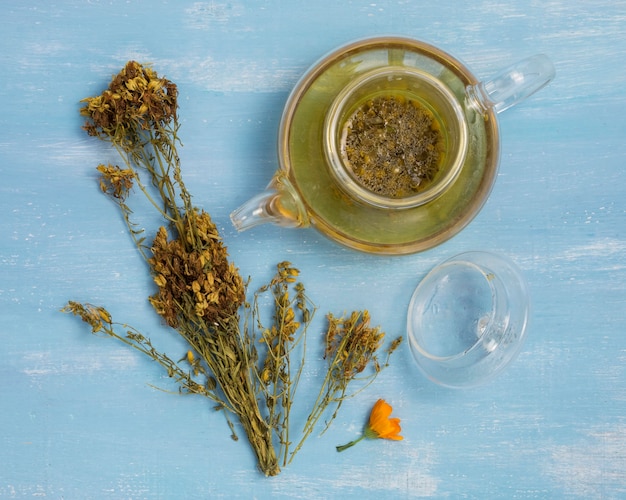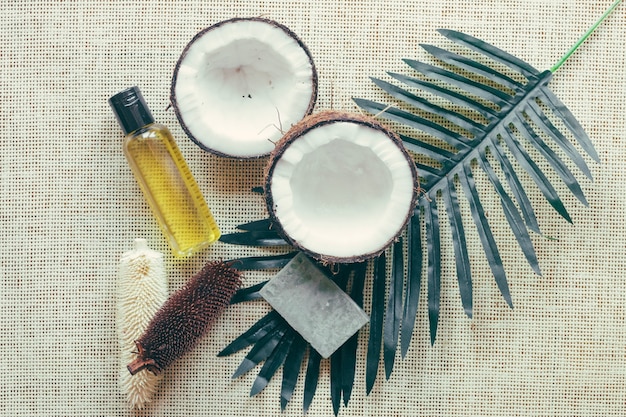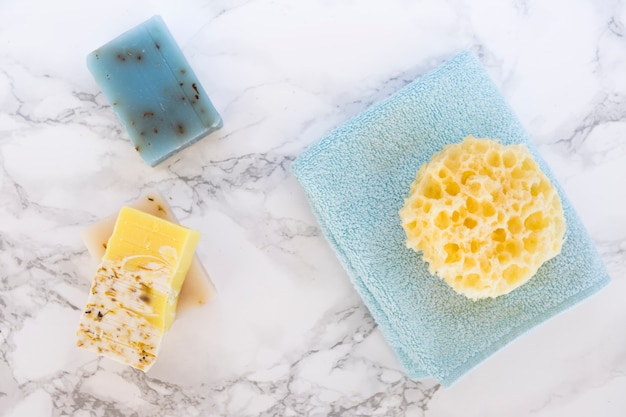
It’s time to rethink how you view your lawn. Instead of seeing a weed invasion, start seeing a source of nutrient-rich benefits, especially in dandelion tea. The health benefits of this tea are too significant to overlook.
Dandelions, native to Europe, were brought to North America by European settlers around four centuries ago. Since then, they have spread across millions of yards. What many see as a nuisance is actually a powerhouse of health benefits for those willing to consume it.
Historically, dandelions have been valued for their medicinal properties for over a thousand years. Both their roots and leaves are packed with vitamins and trace minerals, making them an excellent way to enhance your nutrient intake and overall health.
Today, this once-overlooked weed is gaining recognition again, with dandelion tea becoming a popular choice for detoxifying the body, reducing bloating and constipation, soothing stomach issues, and even lowering the risk of certain diseases.
Curious if you should include this tea in your diet? Read on to discover more!
What is Dandelion Tea?
Dandelion tea is created by infusing the roots, leaves, or blossoms of dandelions in hot water, which releases their beneficial compounds. The flavor and nutritional benefits will vary depending on which part of the plant you use. For instance, dandelion roots are great for liver health, leaves support kidney function, and flowers offer a milder taste and benefits.
If you’re not up for picking your own dandelions, you can find organic dandelion tea bags available for purchase to enjoy its health benefits just the same.
13 Health Benefits of Drinking Dandelion Tea
1. Rich in Nutrients
Infusing dandelion greens in water enriches the brew with calcium, iron, potassium, vitamins K, A, and B6, plus riboflavin and thiamin. You’ll also benefit from antioxidant flavonoids like carotene and lutein. The leaves themselves are even more nutritious than spinach or broccoli per ounce.
2. Helps Manage Diabetes
Dandelion tea has been shown to lower blood sugar levels, which is crucial for managing diabetes. While research is ongoing, the initial findings are promising.
3. Caffeine-Free Coffee Alternative
Tired of caffeine crashes? Roasted dandelion root tea is a satisfying, caffeine-free alternative to coffee, complete with antioxidants and minerals.
4. Reduces Inflammation
Chronic inflammation can cause joint pain, muscle tenderness, and headaches. The antioxidants in dandelion tea act as anti-inflammatory agents, helping to reduce pain and swelling.
5. Reduces Water Weight
Feeling bloated? Dandelion tea acts as a natural diuretic, increasing urination to help shed excess water weight. A study indicated that just two servings could enhance your system’s flow.
6. Aids in Weight Loss
Research from Korea suggests that dandelions could be as effective as the weight loss drug Orlistat by naturally inhibiting pancreatic lipase, an enzyme involved in fat storage. This can help in losing weight.
7. Prevents Chronic Diseases
With its rich antioxidant content, dandelion tea helps the body fend off free radicals, minimizing oxidative stress that can lead to diseases like cancer. These antioxidants also strengthen the immune system.
8. Soothes Digestive Issues
Dandelion tea acts as a natural diuretic, digestive stimulant, and mild laxative, aiding in the digestive process, relieving constipation, and reducing bloating and cramps.
9. Promotes Liver Health
This folk medicine staple is backed by science; dandelion tea can increase bile flow, aiding liver detoxification and reducing liver disease symptoms. Research from China Pharmaceutical University supports this traditional use.
10. Potential Cancer-Fighting Properties
Early studies indicate that dandelion root extract has the ability to kill melanoma cells without harming healthy ones. The tea’s antioxidants also combat free radical damage, which can lead to cancer.
11. Prevents Urinary Tract Infections
Dandelion tea’s diuretic effects make it an effective remedy for UTIs, especially when paired with bearberry (uva ursi). Increased urination helps clean out the kidneys, reducing infection risk.
12. Strengthens Bones
Loaded with minerals like calcium, zinc, magnesium, and iron, dandelion tea supports strong bones and helps prevent osteoporosis, particularly crucial as bone density decreases with age.
13. Boosts Circulation
The iron in dandelion tea enhances blood flow and boosts red blood cell counts, ensuring efficient oxygenation throughout the body.
How to Collect Your Own Dandelions
Gathering wild dandelions can be rewarding, but be cautious of herbicides and pollutants. Avoid roadside and chemically-treated areas. Safe bets include open spaces in woods and naturally maintained backyards. Always wash the plants thoroughly.
Pick dandelion leaves in the spring for tenderness, while roots are sweetest in late fall or winter. Choose young, tender leaves for the least bitterness, and store them in the fridge wrapped in a damp paper towel. For roots, dig deep to extract the entire taproot, which you can use fresh or slow roast for a coffee alternative.
Remember not to harvest all the dandelions, as they are important for bees in the spring.
How to Make Dandelion Tea
Making dandelion tea is straightforward. Pour hot water over sliced greens or roasted roots and let steep for 5-10 minutes before straining and drinking. Enjoy it fresh, and if it’s too bitter, add lemon or honey.
You can also dry the leaves or roots using a dehydrator, oven, or sun, and store them in airtight jars in a cool, dry place.
Possible Side Effects of Dandelion Tea
While generally safe, dandelion tea can cause stomach aches, diarrhea, allergic reactions, and may interact with certain medications like Cipro. Its high vitamin K can also affect blood clotting. Start with a small amount and consult your doctor if you’re on medication.
Other Uses for Dandelions
Dandelion greens are versatile and can be used like spinach or arugula in salads, sandwiches, or as sautéed side dishes. They can be strong in flavor, so consider mixing them with milder vegetables.
Here are some ideas:
– Make an antioxidant-rich pesto with basil and dandelion greens.
– Sauté them as a seafood topping.
– Add them to smoothies for a nutritional boost.
– Use in a vegetable broth with mushrooms and miso for soup.
– Create “dandelion chips” by seasoning and baking them until crispy.
Start experimenting with dandelion recipes and you’ll soon appreciate their health benefits!



